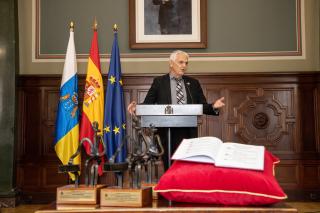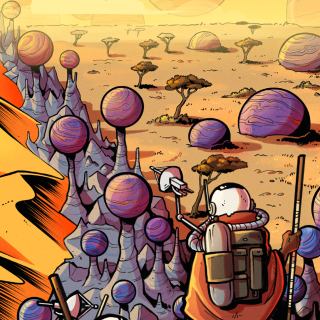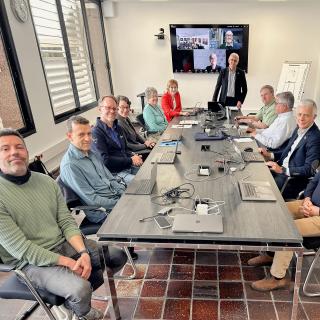It may interest you
-
 El Instituto de Astrofísica de Canarias (IAC) ha sido distinguido por la Delegación del Gobierno en Canarias con uno de los reconocimientos entregados durante el acto de conmemoración del 47 aniversario de la Constitución española de 1978, celebrado este 6 de diciembre y presidido por el delegado del Gobierno en Canarias, Anselmo Pestana. La Delegación del Gobierno ha reconocido la labor del IAC, que celebra su 40 aniversario, en virtud del artículo 44.2 de la Constitución Española, por su fundamental contribución a la promoción de la ciencia y la investigación científica y técnica enAdvertised on
El Instituto de Astrofísica de Canarias (IAC) ha sido distinguido por la Delegación del Gobierno en Canarias con uno de los reconocimientos entregados durante el acto de conmemoración del 47 aniversario de la Constitución española de 1978, celebrado este 6 de diciembre y presidido por el delegado del Gobierno en Canarias, Anselmo Pestana. La Delegación del Gobierno ha reconocido la labor del IAC, que celebra su 40 aniversario, en virtud del artículo 44.2 de la Constitución Española, por su fundamental contribución a la promoción de la ciencia y la investigación científica y técnica enAdvertised on -
 An international scientific team, including members of the Instituto de Astrofísica de Canarias (IAC), has launched an ambitious program to map exoplanets located around the Neptunian Desert —a region around stars where planets the size of Neptune are very rare— in order to better understand the mechanisms of planetary system evolution and formation. This scientific expedition has delivered its first results with the observation of the TOI-421 planetary system. Analysis of this system reveals a surprisingly inclined orbital architecture, offering new insights into the chaotic history ofAdvertised on
An international scientific team, including members of the Instituto de Astrofísica de Canarias (IAC), has launched an ambitious program to map exoplanets located around the Neptunian Desert —a region around stars where planets the size of Neptune are very rare— in order to better understand the mechanisms of planetary system evolution and formation. This scientific expedition has delivered its first results with the observation of the TOI-421 planetary system. Analysis of this system reveals a surprisingly inclined orbital architecture, offering new insights into the chaotic history ofAdvertised on -
 From Thursday, May 8th, to Friday, May 9th, the Canary Islands Institute of Astrophysics (IAC) is hosting the meeting of the Research Advisory Committee (CAI). This is the center's highest advisory body on research and analyzes its scientific and technological output. At this meeting, the director, Valentín Martínez Pillet, will present the center's main scientific and technological milestones, as well as a proposal for future lines of action. The director will also be joined by Eva Villaver, deputy director of the IAC; Romano Corradi, director of Gran Telescopio Canarias; Jonay GonzálezAdvertised on
From Thursday, May 8th, to Friday, May 9th, the Canary Islands Institute of Astrophysics (IAC) is hosting the meeting of the Research Advisory Committee (CAI). This is the center's highest advisory body on research and analyzes its scientific and technological output. At this meeting, the director, Valentín Martínez Pillet, will present the center's main scientific and technological milestones, as well as a proposal for future lines of action. The director will also be joined by Eva Villaver, deputy director of the IAC; Romano Corradi, director of Gran Telescopio Canarias; Jonay GonzálezAdvertised on
